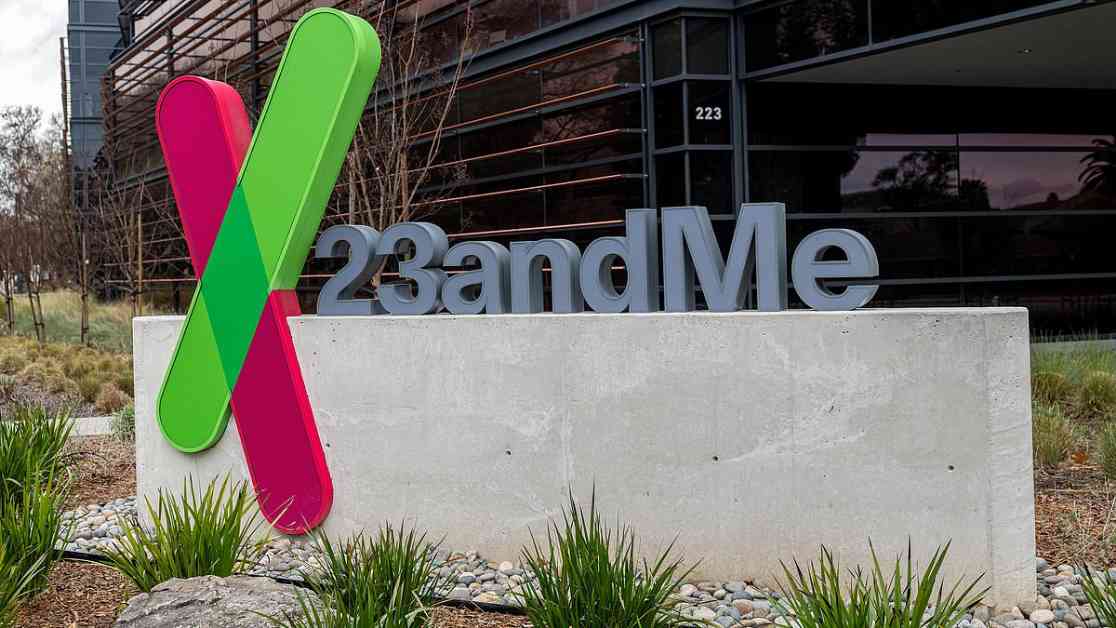For some people, signing up with DNA-testing company 23andMe has been a life-changing experience. It has led to reuniting with long-lost siblings or discovering relatives they never knew existed. However, not all discoveries have been positive. One family found out that the daughter they had raised for 18 years was not their biological child due to an embryo mix-up at a fertility clinic. Despite the shocking revelations, many individuals have embraced the opportunity to learn more about their ancestry and potential genetic health conditions.
Just a few years ago, 23andMe was celebrated as a major success story in Silicon Valley, boasting 15 million subscribers and a share price surpassing that of Apple. Celebrities and billionaires, including media mogul Rupert Murdoch and Hollywood producer Harvey Weinstein, endorsed the company at glamorous ‘spit parties.’ The company’s flagship product, the Personal Genome Service, received accolades such as Time magazine’s Invention of the Year in 2008.
However, the once-promising future of 23andMe has taken a drastic turn. The company, valued at $6 billion, is now on the brink of bankruptcy. Despite CEO Anne Wojcicki’s intentions to take the business private, speculations suggest that the company might have to be sold off or face closure. The declining share price, layoffs of 40% of the workforce, and closure of the drug development arm have all contributed to the company’s downfall.
One of the fundamental flaws in 23andMe’s business model was the lack of incentives for customers to continue using their services after receiving their initial DNA reports. This flaw, coupled with financial struggles, has raised concerns about the future of the company and the fate of its vast collection of sensitive personal data. With genetic information being immutable and possessing significant implications for health and privacy, the potential misuse of such data is alarming.
While Europe and the UK have stricter data protection laws compared to the US, data breaches remain a significant concern. 23andMe faced a security breach last year, leading to the exposure of personal information of 6.9 million individuals. Even though DNA records were not compromised, the incident highlighted the company’s vulnerabilities and raised doubts about its data protection measures.
The rise and fall of 23andMe serve as a cautionary tale about privacy in the digital age and the risks associated with entrusting personal information to companies with questionable track records. Critics have long suspected that 23andMe’s primary objective was to amass personal data, especially considering its ties to Google, a company known for privacy issues. The merger with Virgin Group and the subsequent stock market listing further added to the company’s uncertain future.
As 23andMe grapples with financial turmoil, customers are left wondering about the security of their data and the company’s ability to safeguard their privacy. The fate of Atlas Biomed, another DNA-testing company that abruptly ceased trading, underscores the broader concerns surrounding the industry. With the privacy of genetic information at stake, individuals must remain vigilant about the risks associated with sharing their data and demand transparency from companies handling sensitive personal information.
